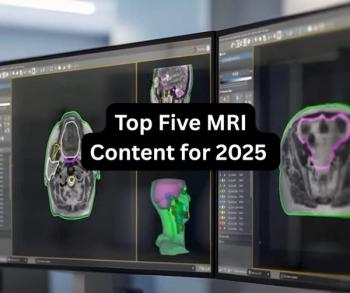
- Diagnostic Imaging Vol 32 No 7
- Volume 32
- Issue 7
Stress cardiac MRI reduces costs, inpatient days
Stress cardiac MRI reduced incident cost without missing any acute coronary syndrome cases in patients with chest pain at a North Carolina facility.
Stress cardiac MRI reduced incident cost without missing any acute coronary syndrome cases in patients with chest pain at a North Carolina facility.
Normally, patients with an intermediate or high probability of acute coronary syndrome without evidence of a myocardial infarction receive inpatient care. Wake Forest University Baptist Medical Center researchers instead randomized patients to receive stress cardiac MRI in an observation unit or receive standard inpatient care (Ann Emerg Med, 2010 May 27 [Epub ahead of print]).
Of the 110 patients, 53 received MRI and 57 went to inpatient care. Eleven patients in the MRI track and 54 in the standard care track were admitted. Median cost for the MR group was $2062 while for the inpatient care group it was $2680.
“As we gain more knowledge and develop better technology, we are realizing that you can both decrease cost and maintain quality,” said Dr. Chadwick Miller, an assistant professor of emergency medicine at Wake Forest and lead author of the study. “This is a good example of such a case, where technology, because it is more accurate, helps us cut costs. It’s a win-win situation.”
Articles in this issue
over 15 years ago
Marilyn Monroe's chest x-rays sell for big bucksover 15 years ago
Timothy Leary had nothing on 1950s radiologistover 15 years ago
Algorithm drops number of CTs for some strokesover 15 years ago
Risk factors determine need for CTA for PEover 15 years ago
TeraRecon harnesses cloud to display EMR imagesover 15 years ago
Siemens adds MR transmit channels to boost functionover 15 years ago
Monkeys and dogs and donkeys: Oh CT!over 15 years ago
Is the party over for high-tech imaging's sustained growth?over 15 years ago
CT, MR volumes starting to plunge, several experts sayover 15 years ago
Correct Application Of MRI: helps find causes of lower back painNewsletter
Stay at the forefront of radiology with the Diagnostic Imaging newsletter, delivering the latest news, clinical insights, and imaging advancements for today’s radiologists.












